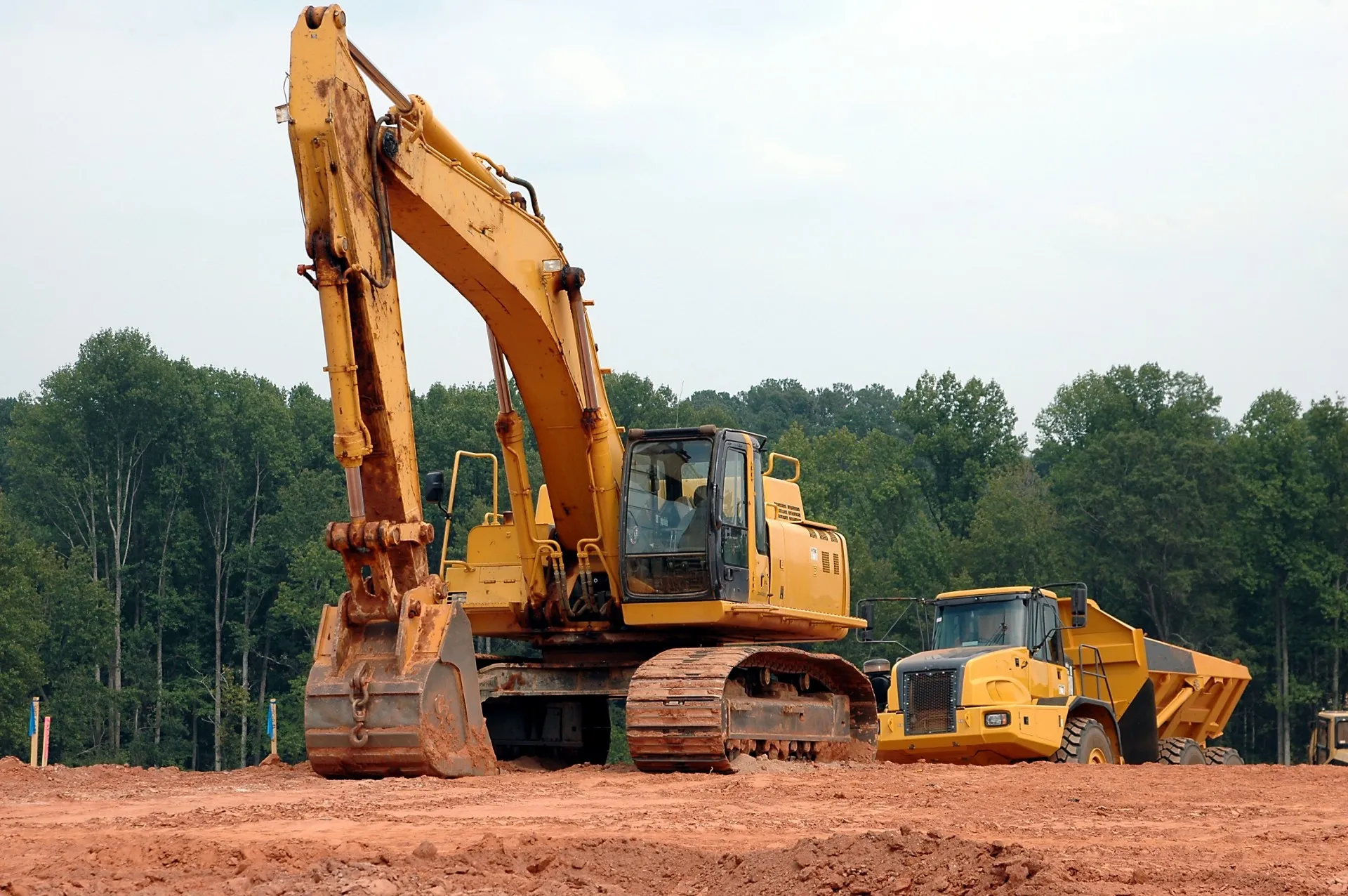Embark on a fascinating journey into the world of road construction machinery, the unsung heroes shaping the asphalt tapestry beneath our feet. We’ll delve into the intricate world of these machines, unraveling the secrets of asphalt plants that cook up the black magic, truck cranes that dance with steel, asphalt pavers that lay down the smooth foundation, and drum rollers that polish the surface to perfection. Buckle up and prepare to be awed by these engineering marvels that silently transform our infrastructure, one road at a time.
Road Construction Machines: Your Guide to Building the Roads We Travel
Ever wonder how those massive roads appear seemingly overnight? The secret lies in the incredible world of road construction machines. These mechanical marvels are the backbone of any road project, performing the Herculean tasks of digging, lifting, hauling, and paving, ultimately making our modern transportation system possible. Let’s take a closer look at some of these amazing pieces of equipment:
1. Moving Mountains: Earthmoving Equipment
Before laying down any asphalt or concrete, the ground must be prepped. This is where earthmoving equipment takes center stage.
- Excavators: These giants with massive arms and buckets are perfect for digging trenches, removing large quantities of soil, and even demolishing existing structures to make way for the new road.
- Backhoes: Combining digging power with precision, backhoes are ideal for tasks like digging trenches for utilities, excavating foundations, and loading materials.
- Bulldozers: When you need to move a mountain (or at least a really big pile of dirt), the bulldozer is your go-to machine. They use their wide blades to push, spread, and level the earth, making sure the construction site is prepped and ready for the next phase.
2. Paving the Way: Asphalt Paving Equipment
With a solid foundation in place, it’s time to lay down the road surface: asphalt. This is where asphalt paving equipment steps in, transforming that black, gooey mix into a smooth, durable road.
- Asphalt Pavers: These machines are the heart of asphalt paving. They heat and spread the asphalt mixture evenly across the prepared surface, ensuring a consistent and long-lasting road surface.
- Road Rollers: Once the asphalt is laid down, massive rollers come into play. They compress and compact the asphalt, squeezing out any air pockets and creating a smooth, even surface that’s ready to handle the weight of traffic.
3. The Concrete Jungle: Concrete Construction Equipment
For roads that require extra strength and durability, concrete takes center stage. Concrete construction equipment works together to mix, transport, pour, and finish concrete, creating those long-lasting concrete roadways.
- Concrete Mixers: Also known as cement mixers, these rotating drums are responsible for combining cement, water, sand, and gravel in precise proportions to create that familiar concrete mixture.
- Concrete Trucks: Time is of the essence with concrete, and that’s where the iconic concrete mixer trucks come in. These trucks keep the concrete mixture constantly churning as they transport it from the mixing plant to the construction site, ensuring it remains workable and ready to pour.
- Concrete Pavers: These heavy-duty machines are like giant screeds that distribute and level the concrete to create a smooth, consistent surface. They ensure the concrete is poured to the correct thickness and slope for proper drainage and a long-lasting roadway.
4. Beneath the Surface: Utility Installation Equipment
Roads are more than just the surface we drive on. They often house essential utilities like water pipes, gas lines, and fiber optic cables. Utility installation equipment allows us to put these underground with minimal disruption to the surrounding area.
- Trenchers: These machines are like giant chain saws, digging narrow trenches for burying utilities. They’re efficient and precise, minimizing the amount of earth that needs to be moved.
- Horizontal Directional Drilling (HDD) Machines: What about installing utilities under obstacles like rivers or existing roads? That’s where HDD machines shine. They drill horizontally underground, guiding pipes and cables along a pre-determined path without needing to dig up the entire area.
5. Keeping Roads Smooth: Maintenance and Repair Equipment
Just like anything else, roads need regular maintenance and occasional repairs to keep them safe and in tip-top shape. Maintenance and repair equipment helps keep our roadways smooth and free of potholes.
- Asphalt Milling Machines: When a road surface is beyond a simple patch job, these machines come in to remove the damaged asphalt layer. They grind up the old asphalt, which can be recycled and reused in new paving projects, making them environmentally friendly as well.
- Road Graders: Also known as motor graders, these versatile machines use their long blades to smooth out bumps and dips in the road surface. They play a crucial role in maintaining proper drainage and creating a comfortable ride for drivers.
The next time you’re driving down the road, take a moment to appreciate the incredible world of road construction machines and the skilled operators who use them. It’s amazing to think about the complex symphony of equipment and expertise that goes into creating and maintaining the roadways that connect us all.
What are the Different Types of Road Construction Machines?
Building a road is a massive undertaking that requires a whole fleet of specialized machines, each playing a crucial role in transforming a simple stretch of land into a safe and durable roadway. These mechanical marvels are essential for everything from digging and leveling to paving and hauling, ensuring the project runs smoothly and efficiently.
Key Takeaways:
- Think of road construction like a well-choreographed dance, with each machine having a specific part. You’ve got your excavators for digging, graders for smoothing, and rollers for compacting.
- From massive motor graders to nimble forklifts, the type of equipment used depends on the job at hand, the materials involved, and the lay of the land.
- Knowing your machines inside and out is key to a successful project. It’s like having the right tools in your toolbox – it makes all the difference.
Types of Road Construction Machinery:
Let’s break down these heavy hitters and see what they bring to the construction party:
1. Excavators: The Groundbreakers
Imagine these as the big diggers on site. Excavators are the muscle behind any road project, tasked with:
- Digging Trenches and Holes: They carve out the space needed for foundations, drainage systems, and underground utilities.
- Removing Soil and Debris: They clear the way, making sure the construction site is prepped and ready for the next phase.
Types of Excavators:
- Crawler Excavators: These robust machines use tracks instead of wheels, making them ideal for navigating uneven terrain and tackling tough digging conditions.
- Hydraulic Excavators: Powered by hydraulic systems, these excavators offer precise control and impressive digging power.
- Mini Excavators: Don’t let the name fool you, these compact powerhouses are surprisingly strong and perfect for tighter spaces.
2. Motor Graders: The Levelers
Once the digging is done, it’s time to smooth things over. Enter the motor graders, masters of leveling and shaping:
- Leveling Surfaces: They create a flat and even base for the road, ensuring proper drainage and a smooth driving surface.
- Shaping Roadbeds: They mold the earth into the desired shape and slope of the road, creating the foundation for the pavement.
- Maintaining Gravel Roads: They’re essential for keeping gravel roads in top shape, grading and smoothing the surface to prevent potholes and ensure proper water runoff.
Types of Motor Graders:
- Blade Graders: These graders utilize a long, adjustable blade to precisely level and shape the ground.
- Elevating Graders: Equipped with a conveyor belt system, they excel at moving large volumes of earth, making them ideal for large-scale road projects.
3. Road Rollers: The Compactors
No one likes a bumpy road. That’s where road rollers come in, using their immense weight to compact and stabilize the road surface:
- Compacting Asphalt, Soil, and Gravel: They press down on these materials, squeezing out air pockets and creating a dense, durable surface. This ensures the road can handle heavy traffic without sinking or deforming.
Types of Road Rollers:
- Vibratory Rollers: These rollers vibrate as they roll, adding extra compaction power to create a super-smooth and stable surface.
- Pneumatic Rollers: Using multiple tires filled with air, they provide a kneading action that’s perfect for compacting asphalt and creating a uniform finish.
- Tandem Rollers: Featuring two smooth drums, these rollers offer excellent compaction and are commonly used for finishing work.
4. Asphalt Pavers: The Surfacers
Time to lay down some blacktop! Asphalt pavers are the stars of the show when it comes to creating a smooth, even road surface:
- Laying Asphalt Mixture: They distribute the asphalt mixture evenly across the prepared roadbed, ensuring a consistent thickness and smooth finish.
Types of Asphalt Pavers:
- Track Pavers: Offering superior traction and stability, they are ideal for large-scale paving projects and uneven terrain.
- Wheeled Pavers: These versatile pavers are maneuverable and efficient, making them suitable for a wide range of paving applications.
5. Forklifts: The Material Handlers
Construction sites are like bustling beehives of activity, and forklifts are the worker bees, moving materials and keeping things organized:
- Lifting and Moving Materials: They effortlessly lift and transport heavy pallets of materials, like paving stones, pipes, and construction supplies, ensuring everything is in the right place at the right time.
Types of Forklifts:
- Diesel Forklifts: Known for their power and durability, these workhorses are ideal for outdoor construction sites.
- Electric Forklifts: Clean and quiet, these forklifts are a popular choice for indoor and enclosed construction environments.
- Gas Forklifts: Offering a good balance of power and maneuverability, they are a versatile option for many construction sites.
6. Crawler Excavators: The Heavy Diggers
When the going gets tough, crawler excavators are up for the challenge. These powerful machines are built for heavy-duty excavation:
- Digging Trenches: They can dig deep and wide trenches, making them essential for laying pipelines, cables, and foundations.
- Excavating Foundations: They clear away large volumes of earth to create stable bases for buildings and other structures.
- Loading Materials: Equipped with large buckets, they efficiently load trucks with excavated soil, rocks, and other materials.
Types of Crawler Excavators:
- Tracked Excavators: Their continuous track system provides exceptional stability and traction, especially on uneven or muddy terrain.
- Wheeled Excavators: These excavators offer greater mobility on paved surfaces, making them versatile for projects that require frequent relocation.
7. Truck Cranes: The Heavy Lifters
Need to move something massive? Truck cranes are the answer. These towering machines are essential for lifting and transporting heavy objects on construction sites:
- Lifting and Moving Heavy Objects and Materials: Think steel beams, concrete slabs, and large pieces of equipment. Truck cranes make light work of these behemoths, carefully lifting and placing them with precision.
Types of Truck Cranes:
- Boom Trucks: These versatile cranes feature a hydraulic arm (boom) mounted on a truck bed, providing excellent reach and lifting capacity.
- Rough-Terrain Cranes: Built for rugged environments, they have sturdy tires and excellent ground clearance, making them ideal for navigating challenging construction sites.
- Crawler Cranes: These heavy lifters use tracks instead of wheels, providing exceptional stability for lifting incredibly heavy loads.
8. Wheel Loaders: The Versatile All-Rounders
Wheel loaders are the jacks-of-all-trades on the construction site, capable of handling a wide range of tasks:
- Loading and Moving Loose Materials: They scoop up and transport large quantities of soil, gravel, sand, and other materials, making them essential for site preparation and material handling.
- Digging Trenches and Excavations: While not as specialized as excavators, wheel loaders can dig shallow trenches and excavate areas for foundations and utilities.
Types of Wheel Loaders:
- Skid Steer Loaders: These compact loaders are incredibly maneuverable, making them perfect for tight spaces and a variety of attachments.
- Track Loaders: Similar to skid steers but with tracks instead of wheels, they offer superior traction on muddy or uneven terrain.
- Wheeled Loaders: These larger loaders offer greater capacity and power, making them suitable for heavy-duty loading and moving tasks.
Building a road is a complex symphony of coordinated effort, and these machines are the orchestra, each playing a vital role in transforming a vision into reality. Understanding their unique capabilities and how they work together is essential for anyone involved in the world of road construction.
How Do Road Construction Machines Work?
We’ve all seen them – those powerful machines transforming dirt and gravel into smooth, safe roads. But have you ever wondered how those construction machines actually work their magic? Let’s dive into the fascinating world of road construction and explore the inner workings of some key players:
Motor Graders: The Multitasking Marvels
Imagine a giant, heavy-duty Swiss Army knife designed for roads. That’s the motor grader! These versatile machines boast a long, adjustable blade that’s the key to their flexibility. Operators, perched high up in a special cab for a bird’s-eye view, can manipulate the blade with incredible precision.
Motor graders are essential for:
- Leveling the ground: Creating a smooth base for the road.
- Shaping the road surface: Creating those gradual curves and slopes for safe travel.
- Maintaining drainage ditches: Keeping water flowing away from the pavement.
Road Rollers: The Compaction Crew
You can’t just lay down asphalt on loose dirt and call it a road. Road rollers are essential for compacting – squeezing the ground and asphalt to make it dense and strong, enabling it to withstand the weight of countless vehicles.
Different types of rollers:
- Static rollers: Rely solely on their weight for compaction.
- Vibratory rollers: Use vibrations to rearrange the particles in the material, leading to even tighter compaction.
- Pneumatic rollers: Equipped with multiple air-filled tires, they’re perfect for achieving a smooth, even finish.
Asphalt Pavers: Laying Down the Blacktop
Asphalt pavers are the ultimate paving machines. They take that hot, gooey asphalt mixture and spread it with impressive precision, creating a smooth, even layer that forms the road’s surface.
How asphalt pavers work:
- A large hopper on the paver holds the asphalt mixture.
- This mixture is then fed into a screed, which acts like a giant, adjustable spatula.
- The screed controls the thickness and width of the asphalt layer, ensuring it meets the exact specifications for the road.
- As the paver moves forward, it leaves behind a trail of fresh, smooth pavement.
Asphalt Milling Machines: Out with the Old
When a road needs repaving, asphalt milling machines step onto the scene. These powerful machines are equipped with rotating cutters that grind away the old, worn-out asphalt layer, much like a giant cheese grater. This creates a clean, even surface for the new asphalt to bond with, ensuring a strong, durable road.
Key Takeaways:
- Road construction isn’t just about brute force, it’s about precision and efficiency, thanks to specialized machines.
- Each machine plays a unique role, from preparing the ground to laying down the final layer of asphalt.
- Understanding how these machines work gives us a greater appreciation for the complexity of road building.
- Maintaining our roads depends on these machines, so next time you see one, give a nod to the marvels of modern engineering!
Citation:
Types and Functions of Road Construction Machines.
What are the Key Features of Road Construction Machines?
Let’s dive into what makes each road construction machine special – think of it like a construction crew with each member having their own unique skills.
These Machines Really Dig In (Sometimes Literally!)
- Excavators: The swiss army knives of construction! Excavators are your go-to for digging trenches, laying foundations, and even creating drainage systems. Need to swap jobs? No problem! Excavators can switch out attachments, making them adaptable to all sorts of tasks.
- Motor Graders: If excavators are the tough guys, motor graders are the artists. They smooth and level surfaces with their blade, making sure your roads have the right slope and those ditches are nice and clean. Precision is their game – think of them as the ones laying down the perfect canvas for the road ahead.
- Road Rollers: Time to get things packed down! Road rollers are the muscle, pressing down on soil and asphalt to create a solid foundation. Just like there’s more than one way to get something done, there are different rollers for different jobs: some vibrate, some use weight, some even use air!
- Asphalt Pavers: Ever wonder how roads get that smooth, black finish? Asphalt pavers are the answer. They lay down asphalt mixtures with expert precision, ensuring your roads are as smooth as a freshly Zambonied rink. Built-in leveling and smoothing systems mean no bumps in your ride!
- Loaders: Construction sites can get messy, and that’s where loaders come in. These workhorses scoop up all that loose material – think dirt, gravel, even construction debris – and cart it away. Front-end loaders, skid steers, backhoes…you name it, there’s a loader for that!
- Cranes: Think big! Cranes are the heavy lifters of the construction world. They hoist massive objects like pipes, beams, even entire bridge sections, into place with ease. If you see something way up high on a construction site, chances are a crane put it there.
- Dump Trucks: What good is digging and loading if you can’t move all that stuff? Dump trucks are the haulers, carrying huge amounts of dirt, asphalt, and other materials from point A to point B. These beasts are built tough to handle the constant back and forth, making sure your project stays on schedule.
Picking the Right Tool for the Job
Just like you wouldn’t use a hammer to paint a wall, each road construction machine has its own specialty. Understanding what each machine does best is key to a successful and efficient construction project. If you’re interested in learning more about specific aspects of road construction, such as the standard height of mezzanine for worker safety or the cost of birr per square meters of a steel shade in Ethiopia, those resources are just a click away. Additionally, if you’re looking to venture into road building, our comprehensive asphalt road building guide can provide valuable insights to get you started.
- Seal for butcher block: Find the best food-safe finish - December 29, 2025
- Finishes For Butcher Block Counters: Choosing The Right Food-Safe Option - December 28, 2025
- Kitchen Countertop Ideas: Find the Perfect Surface for You - December 27, 2025










